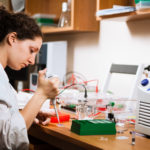
How beeswax could help families in warzones
Beeswax and local herbs could be crucial in helping families living in conflict zones store food, according to scientists from Cardiff University and Kharkiv Polytechnic Institute of National Technical University, Ukraine. Professor Les Baillie from Cardiff University’s School of Pharmacy and Pharmaceutical Sciences has worked with Dr Yudina Yuliia of the Kharkiv Polytechnic Institute of … Continue reading How beeswax could help families in warzones
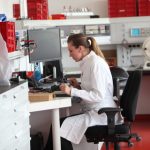
Targeting inflammation to tackle Long Covid
Overactivation of the immune system leading to circulation of inflammatory proteins around the body contributes to the development of Long Covid, and could be targeted to provide treatments for patients. Cardiff University research has uncovered biological markers that could be targeted by repurposing medication to treat Long Covid. The research conducted extensive analysis of plasma … Continue reading Targeting inflammation to tackle Long Covid
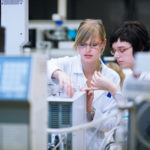
Fussy eaters are more likely to experience Pica eating disorder
Children who experience eating difficulties, including undereating, overeating, and fussy eating are more likely to experience pica, an eating disorder characterised by eating non-food items such as paper or soap, according to new research by Cardiff University. In collaboration with the Center of Excellence for Eating Disorders at the University of North Carolina and the … Continue reading Fussy eaters are more likely to experience Pica eating disorder
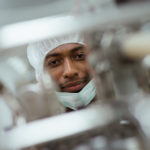
£13 million for biotechnology research to address environmental challenges
The Centre for Environmental Biotechnology (CEB) at Bangor University is part of a new research centre, the first of its kind in the UK, being formed to enhance and develop the natural abilities of micro-organisms in cleaning up our planet. Tackling environmental pollutants and waste using microbes, the new centre is being established with £13m … Continue reading £13 million for biotechnology research to address environmental challenges

Magicians are less likely to have mental health problems
Research undertaken at Aberystwyth University has demonstrated that magicians are less likely to suffer from the mental health challenges faced by other creative people, like musicians and comedians. From comedians like Robin Williams to poets and painters like Sylvia Plath and Vincent Van Gogh, many famous names have had well publicised mental health problems. While … Continue reading Magicians are less likely to have mental health problems

Smart watches could detect Parkinson’s up to seven years before major symptoms appear
Smart watches could be used to speed up diagnosis of Parkinson’s disease by as much as seven years, using a new AI tool. People developing Parkinson’s undergo subtle shifts in walking and sleep years before “hallmark” symptoms such as shaking and difficulty balancing appear, but they are not typically picked up until the disease is … Continue reading Smart watches could detect Parkinson’s up to seven years before major symptoms appear

“We built a human skin printer from Lego”
Welsh scientists have built a human skin printer from Lego for less than £500 and which could change the way doctors treat skin diseases. WalesOnline reports Sion Coulman, Chris Thomas and Oliver Castell, lecturers at Cardiff University, were involved in the project, which was funded by the British Skin Foundation. The three men explained that … Continue reading “We built a human skin printer from Lego”
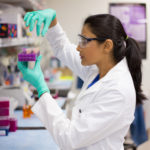
“Benjamin Button” cell reverse ageing technique used in Parkinson’s research
Researchers are using a pioneering “Benjamin Button” reverse ageing technique to come to a better understanding of Parkinson’s disease, which could lead to more effective treatments. The technique takes skin cells that have been donated by people with the condition and turns them back into stem cells by using a combination of “reprogramming factors”. Stem … Continue reading “Benjamin Button” cell reverse ageing technique used in Parkinson’s research

Welsh children to get advanced AI synthetic voices
Bangor University and CereProc have been awarded a contract to supply NHS Wales with sixteen custom synthetic voices for children and teenagers. Bangor University says this solution will break down the communication barriers Welsh children face when using high tech communication devices by providing them with a voice which reflects who they are and their … Continue reading Welsh children to get advanced AI synthetic voices

Newly developed “smart patch” could be used to detect Alzheimer’s
A leading Swansea University scientist has developed a new smart patch that can detect proinflammatory biomarkers of neurodegenerative diseases such as Parkinson’s and Alzheimer’s through the use of microneedle technology. Swansea University says this breakthrough in the advancement of transdermal capability would mean smart patches could be used to detect certain biomarkers within skin interstitial … Continue reading Newly developed “smart patch” could be used to detect Alzheimer’s








